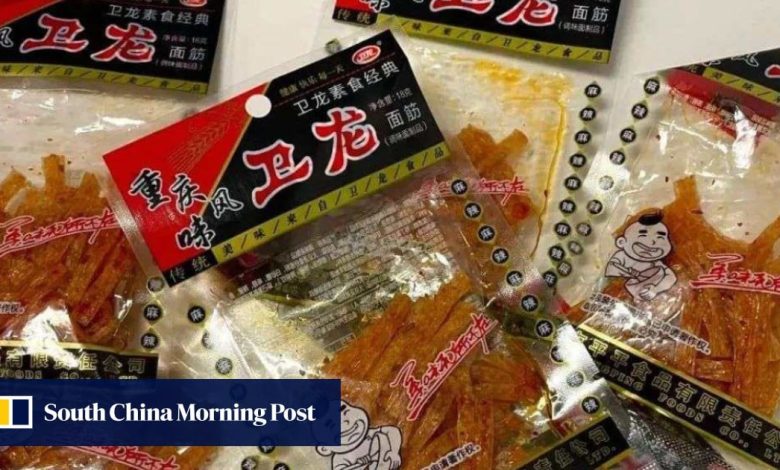Chinese spicy snacks giant Weilong sees profit surge, enticing investors in a slow economy

Based in Luohe, in central Henan province, Weilong said first-half net profit is likely to jump 34 per cent to 39 per cent year on year for estimated earnings of between 599.1 million yuan (US$82.8 million) and 621.5 million yuan, according to the company’s filing to the Hong Kong stock exchange on Thursday.
That projected profit growth stems from its “omnichannel construction and brand building”, which boosted revenue growth online and offline, according to Weilong. It added that a decline in raw material costs also bolstered its gross profit margin.
“We think that snacks’ lower ticket size and higher frequency of purchase could provide a degree of ‘small happiness’ amid a cold macro environment,” Morgan Stanley analysts wrote in a note on Friday.

The optimistic forecast shows how snacks are portrayed as more resilient, outperforming other products in the consumer staples category, as consumption slows in the world’s second-largest economy.
“When consumers are uncertain about their financial prospects or hold a pessimistic view of the economy, they tend to … reduce spending on clothing and other non-essential items because they feel that their existing items suffice,” analysts at McKinsey & Co wrote in a recent report.
An uncertain economic outlook has also led many consumers to prioritise value and quality in their purchases, while others have shifted their attention towards experience-led consumption, favouring experiences over physical products, according to the report.

“We see improving execution from Weilong, and we think that its strong brand equity and rapidly growing vegetable products could sustain good growth in the next 12 months,” the Morgan Stanley report said.
Swiss bank UBS, meanwhile, expected Weilong’s revenue to rise by more than 20 per cent in the second quarter, as costs in key agricultural products and packaging materials were trending down.





